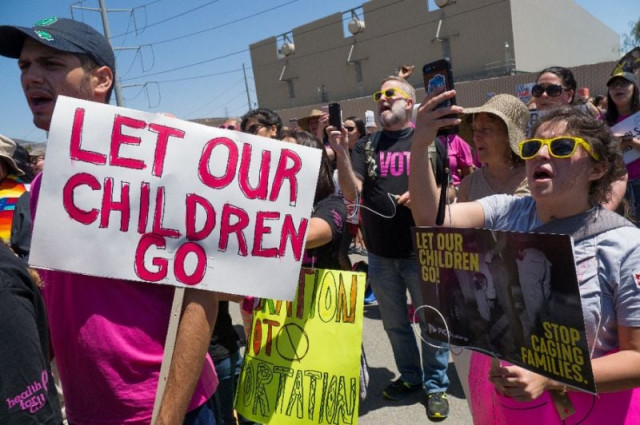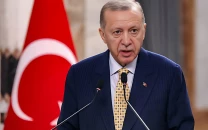US judge extends deadline for reuniting migrant children
They are among more than 2,300 children split up from their families as a consequence of zero tolerance practice

PHOTO AFP
The decision came after a government lawyer said around half of the 102 young children could be placed back with their parents by the previously-given deadline of Tuesday.
They are among more than 2,300 children split up from their families as a consequence of the "zero tolerance" practice that saw their parents prosecuted for illegally crossing the border, even if they did so to seek asylum.
Many are fleeing gang violence and poverty in Central America.
Following domestic and global outcry over the separations, in which some children were kept in chain-link enclosures, Trump ended the practice on June 20.
US judge orders list of children separated from migrant parents
But The New York Times reported late last week that, under pressure to reunite the families, authorities were struggling to connect them after records linking children to their parents disappeared and in some cases were destroyed, although not as part of a deliberate attempt to obfuscate.
At the hearing in San Diego, Judge Dana Sabraw gave the authorities extra time to determine which children will be back with their parents, as government lawyer Sarah Fabian said 54 of the youngsters could be returned to their parents by the Tuesday deadline, the US media reports said.
Sabraw previously ordered that thousands more children aged five and older should be reunited with their parents by July 26, but Monday's hearing did not touch on their cases.
The government on Friday asked for an extension of the deadline, saying it needed more time to find and confirm the identities of the children and parents.
Trump plays up suspense over momentous Supreme Court nomination
Despite the delays, the judge reportedly said he had seen "real progress and I'm optimistic that many of these families will be reunited tomorrow, and then we'll have a very clear understanding as to who has not been reunited, why not, and what time-frame will be in place."
During separation, parents were sent into federal custody while the children were taken by the Department of Health and Human Services (HHS) and held at holding facilities often thousands of miles (kilometres) from their parents.
HHS admitted it had resorted to DNA testing on some of the children to try to match them with their parents.
In total, the authorities are holding around 11,800 minors who crossed the border illegally. Around 80 per cent of them are teenagers who tried to make the crossing without their parents, HHS Secretary Alex Azar has said.



1725099588-0/BeFunky-(41)1725099588-0-208x130.webp)















COMMENTS
Comments are moderated and generally will be posted if they are on-topic and not abusive.
For more information, please see our Comments FAQ